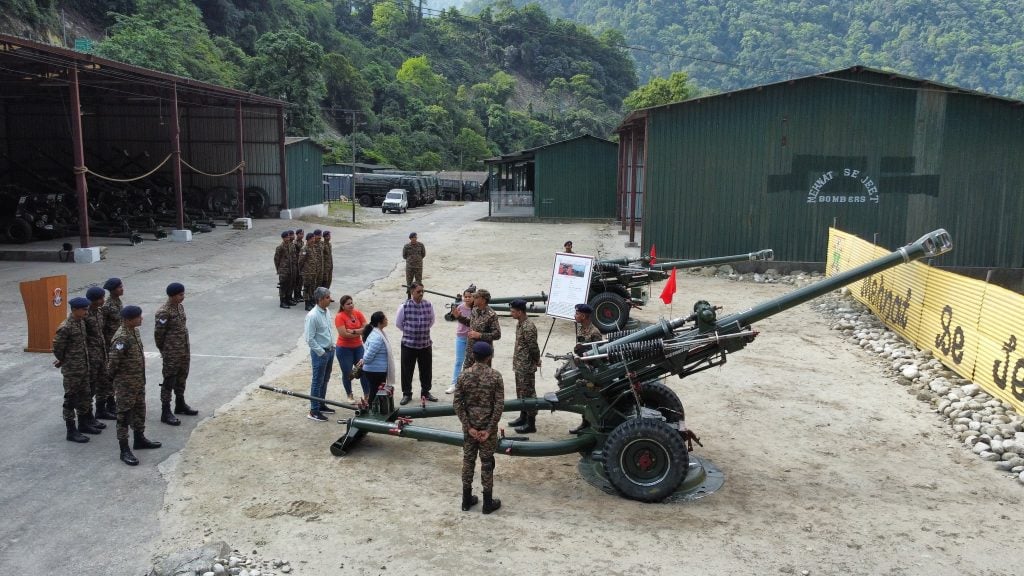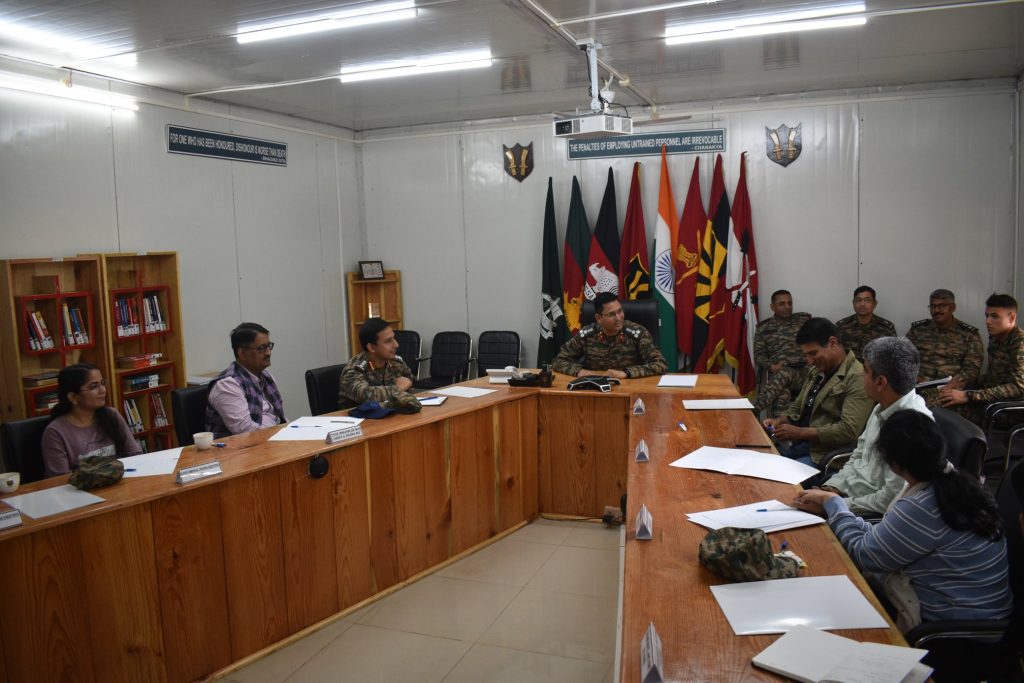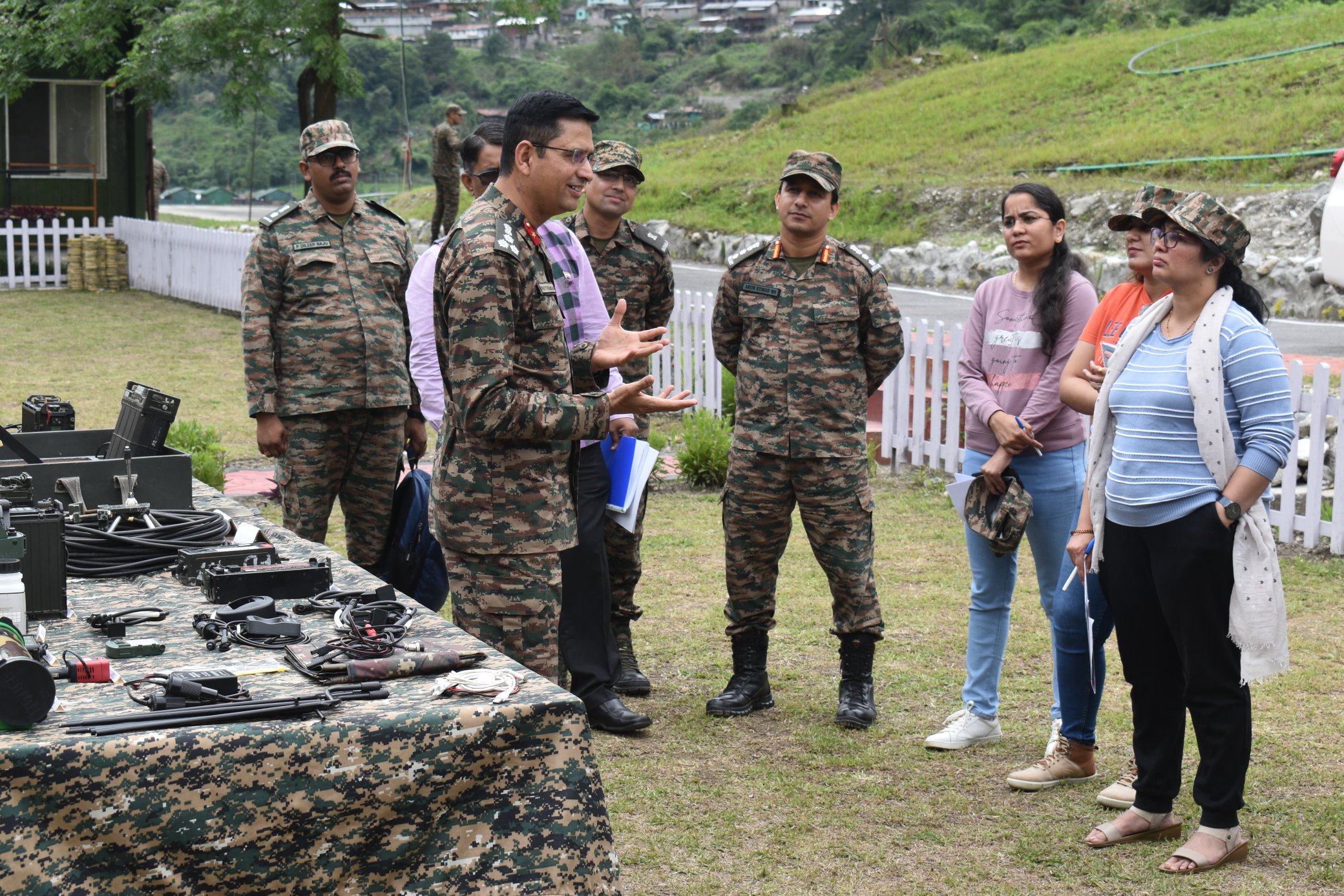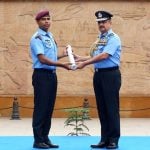In a strategic initiative to bridge the gap between military requirements and industrial capabilities, the Spear Corps of the Indian Army organized a forward area tour for delegates from the defence industry, Micro, Small & Medium Enterprises (MSMEs), startups, and academia.
The tour aimed to provide these experts with firsthand knowledge of the challenges faced in operational areas and to foster a stronger civil-military fusion.
The delegates visited the Lohit Valley, a critical region in Arunachal Pradesh, where they interacted with troops stationed at forward locations.
This interaction was designed to help the delegates understand the specific prerequisites of the troops, encompassing everything from logistical needs to technological advancements required for surveillance and defense in the inhospitable terrain.
This initiative is part of a broader effort to enhance civil-military collaboration under the ‘Aatmanirbhar Bharat’ (Self-Reliant India) campaign. The goal is to harness the expertise of India’s private sector and academia to develop indigenous solutions tailored to the unique operational challenges faced by the military.

During the tour, experts were given an orientation on various operational perspectives, including the dynamics of the terrain, logistical challenges, and the need for advanced surveillance and defense systems.
The Lohit Valley, with its rugged landscape and harsh weather conditions, poses significant challenges that require innovative solutions for effective military operations.
The visiting delegates had the opportunity to engage directly with the soldiers, gaining insights into their daily routines and the difficulties they encounter.
This interaction highlighted the necessity for robust and reliable equipment, efficient logistical support, and cutting-edge surveillance technology to enhance the troops’ operational efficiency and safety.
The tour underscored the importance of developing indigenous technologies and solutions. By understanding the real-world conditions and requirements of the troops, the defence industry and academic institutions can better tailor their research and development efforts.
This aligns with the Indian government’s push for ‘Aatmanirbhar Bharat’, encouraging the production of homegrown defense technologies that can reduce dependency on foreign imports and enhance national security.
Several delegates expressed their appreciation for the tour, noting its importance in bridging the knowledge gap between the military’s needs and the industry’s capabilities.

Dr. Ramesh Gupta, a prominent figure from a leading defense startup, stated, “This tour has provided invaluable insights into the challenges faced by our troops. It is imperative that we align our innovations to meet these specific needs to ensure our soldiers are well-equipped and supported.”
The Indian Army’s initiative to organize such tours is a testament to its commitment to integrating civilian expertise into military operations. By fostering a deeper understanding and collaboration between the defense sector and the military, India can accelerate its journey towards self-reliance and technological advancement in defense.
The forward area tour to Lohit Valley represents a significant step towards civil-military fusion and operational excellence.
As India continues to push for self-reliance in defense, such initiatives will play a crucial role in ensuring that the nation’s defense industry is well-equipped to meet the evolving challenges of modern warfare. The knowledge gained and relationships forged during this tour will undoubtedly contribute to the ongoing transformation and modernization of India’s defense capabilities.













